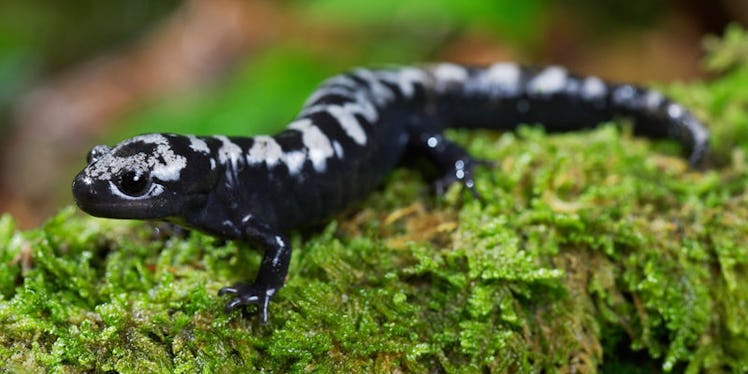
This Female Salamander Is More Pissed At The Hookup Culture Than You Are
So you and the guy you've been hooking up with have been following the usual charade of "what are you up to tonight?" texts every Friday with casual flirty chit chat in between for a month or so.
You waited a while to have sex because you were so jaded by all of the other douche nozzles you've had to deal with in the past but this guy seemed different.
You finally had sex last Friday, and it was pretty good. You cuddled after, and he even got you a bagel the next morning. You almost thought it was love until... HE DECIDED TO FALL OFF THE FACE OF THE EARTH.
That's right. The guy you thought was the one nice exception to the rule just turned out to be yet another douche nozzle. And you are just so done with the hookup culture. You're over it. You want nothing to do with any man anymore.
Literally, could anyone hate men more than you right now? Well, the answer to your question is yes.
One population of female salamanders seems to have it all figured out. A paper published in the Journal of Zoology announces the discovery of an all-female line of North American Ambystoma salamanders who have managed to "evolve beyond sex."
So how are they avoiding having sex? The female salamanders are actually just stealing DNA from male salamanders and using that stolen genetic information to reproduce. HAH, TAKE THAT, DOUCHE NOZZLE MALE SALAMANDERS!
Think about it. Right now you can steal the guy who screwed you over's dignity at best. Maybe you could log on to his Netflix and change the password if you were feeling particularly diabolical.
Of course, there are very important sciencey factors I don't understand that play into this. But I'd like to think that these sassy ladies have literally just had it with men. They're over it. They want nothing to do with any man anymore. Kinda like YOU.
Citations: Fed Up With Sex, Female Salamanders Have Started to Steal DNA From Males (Cosmopolitan), Polyploid unisexual salamanders have higher tissue regeneration rates than diploid sexual relatives (Journal of Zoology)